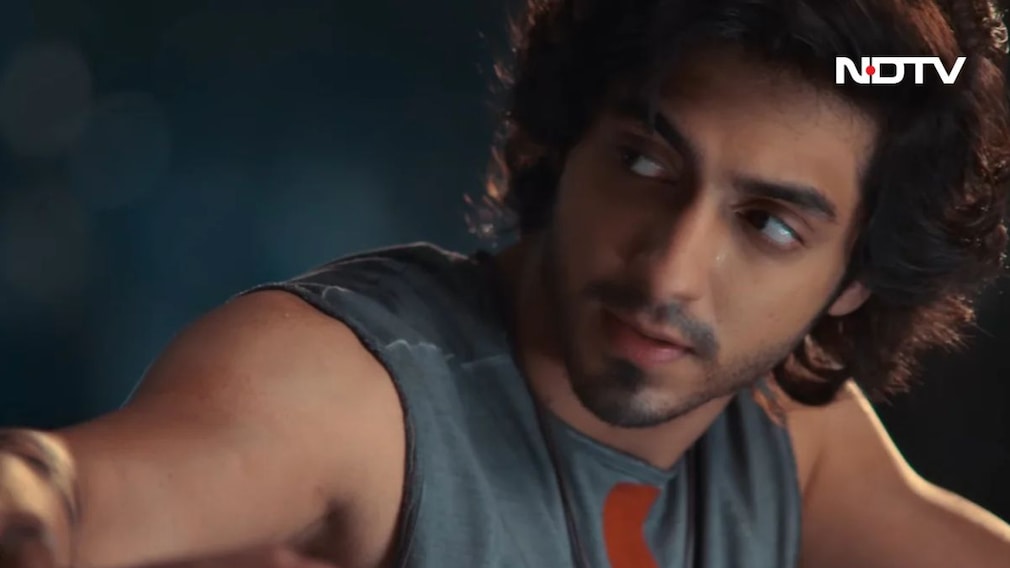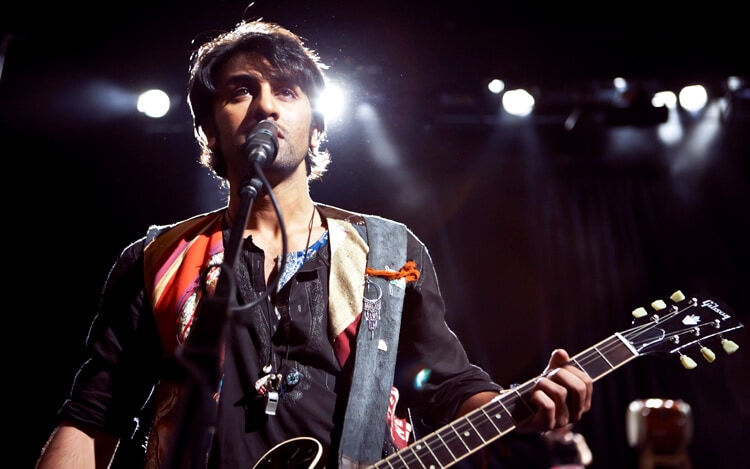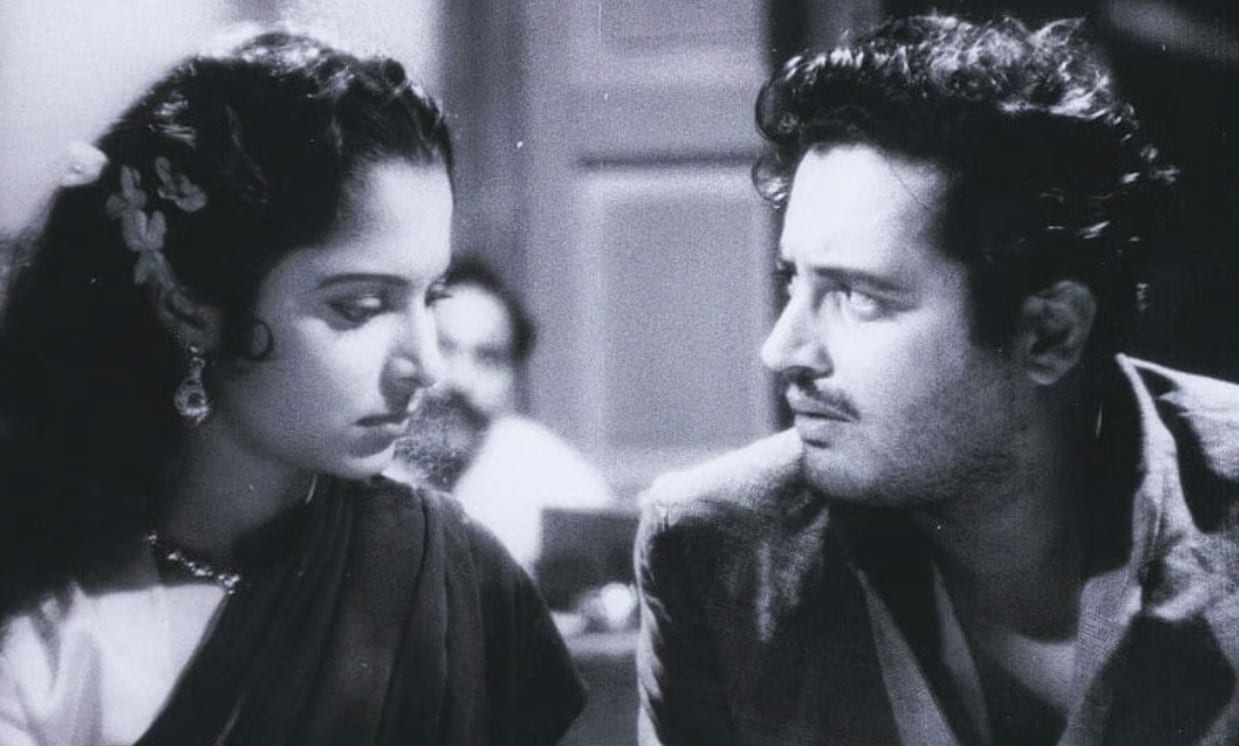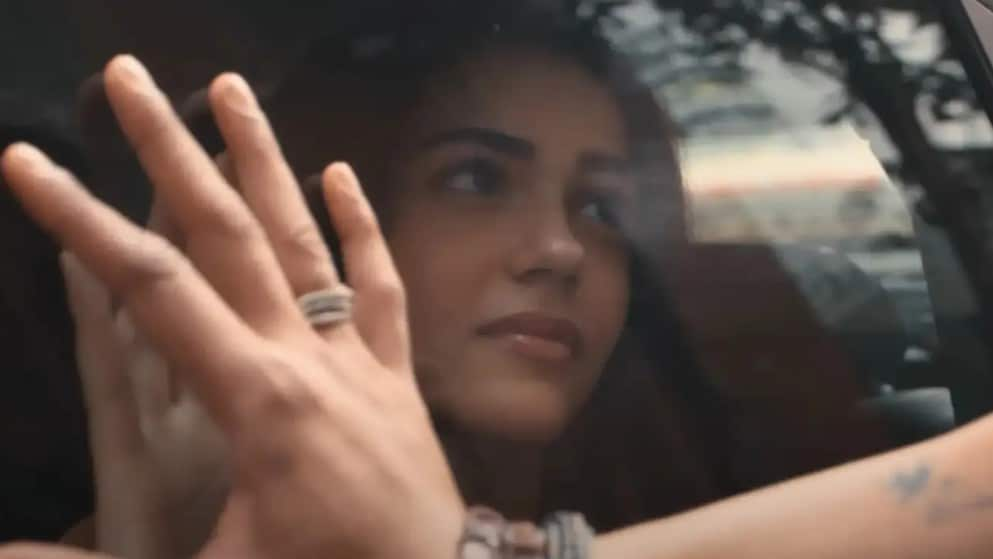Blog | Saiyaara, And The Taming Of The Tortured-Male-Rockstar
Mohit Suri's film flips the script, in that it allows the girl to bypass conventions and extract an Aditya Chopra hero, prone to seeing the divine in the person he loves, from Sandeep Reddy Vanga's universe of God-complexed lovers.

In Mohit Suri's Saiyaara, a bitter boy meets a guarded girl. He is hurting, and she is hurt. He, a singer, uses music to convey wounds, and she, a writer, uses words to cover injury. He seeks fame, and she wants solitude. As star-crossed as it comes, they are destined for a kind of love that consumes both but heals one; headed for a ruined romance where one survives and the other thrives.
Such stories have a precedent, comprising mostly a man at the centre - talented but obscure, wanting love but chasing heartbreak. The ache baptises him as an artist. Karan Johar's Ae Dil Hai Mushkil (2016) is a telling instance. Snubbed by the woman he loves, the man uses shards of his heart to make music, and earns success. This is such a trope that when the protagonist in Imtiaz Ali's Rockstar (2011) wishes to be a singer, he is prescribed heartbreak. Although Ali designs him as a reluctant rockstar willing to forsake everything for love, his hero eventually gains everything his heart desired at the cost of his heart.

Ranbir Kapoor as Janardhan Jakhar, or 'JJ', in Rockstar (2011)
This archetype of a tortured male artist is not a novelty in Hindi films. Guru Dutt's Pyaasa (1957), about a poet awaiting validation from a hostile world till he rejects all, is an early example. There are more, including Suri's own rendition of A Star Is Born in Aashiqui 2 (2013). Ali's Tamasha (2015) has a storyteller bleeding through the mundanity of life. In Abhishek Chaubey's Udta Punjab (2016), a biting take on Punjab's opium problem, the sole artist in the story is drug-addled.

Guru Dutt as Vijay, a tortured, struggling poet, and Waheeda Rahman as Gulabo in Pyaasa (1957)
If narratives confirm broken men as a prerequisite for artistry, they also carve specific roles for women to shoulder: the breaker or the healer. She propels the man to triumph or holds his hand through the turbulence of his making. Either way, she plays a part in someone else's journey and occupies limited space even as the succour demanded of her is boundless. She imprints the art, but the artist remains a man.
With Saiyaara, Suri updates the stereotypes.
Krish Kapoor (Ahaan Panday) is a volatile singer. Life has been unfair to him, and he, in turn, has little patience for fairness. His father is an alcoholic, and his band members, wealthier and better connected, get more recognition in the press. Always seething, he is introduced as beating up a journalist for favouritism. Standing on the other side of the scuffle is Vaani Batra (Aneet Padda), a girl so sensitive that she will probably crumble if pushed. Sparks fly.
This World Is A Tragedy
One would assume this is the story, that he is broken enough to be healed. But Krish, being a Mohit Suri hero, is scripted for graver tragedies. And thus it begins: Krish and Vaani gravitate towards each other. She pieces him together, and the colour of his t-shirts becomes lighter with his heart; a faint smile hovers over his lips. Everything fits: he is a narcissist, and she is devotional; she wishes for his success, and he wishes to be successful. Then disaster strikes, one primed to elevate Krish, but which will first crush him: Vaani is diagnosed with Alzheimer's. So far, so Rockstar.
On a trope-y level, the condition makes sense; as a metaphor, it works even better. Afflicted by a disorder that destroys memory, Vaani's fading into oblivion literalises the dispensable function women play in such narratives. But Suri flips the script. He uses the segue of sickness to craft a subversive coming-of-age story where gender roles are defined but not followed.
An Intervention
The swap happens gently, almost against the wishes of the leads. Till Saiyaara is predictable, the characters act derivative. Till the story is imitative, the ticks feel the same. Krish smokes like Kabir Singh, is called "animal" for his flying temper, and falls in love with the eagerness of Imtiaz Ali's heroes. Ditto for Vaani, who is content being a bystander to Krish's success. Yet, whenever they seek to assume these roles, Saiyaara uses the context of tragedy and intervenes. Moments before Krish's big concert, Vaani assures to be a cheerleader only to be disoriented; after Krish readies to go for his band's first concert tour, he runs back, an image that keeps repeating, from the airport to be next to her.

Aneet Padda as Vaani in Saiyaara
These deflections, slight on the surface, rework archaic optics. They allow the girl to bypass conventions and extract an Aditya Chopra hero, prone to seeing the divine in the person he loves, from Sandeep Reddy Vanga's universe of God-complexed protagonists. Saiyaara features a pliant female character whose path to healing assumes agency to be the central story, and a male artist willing to partake in it as the healer.
The Real Protagonist
Suri's filmmaking responds to this. Vaani might be lurking in the background, restricted to mostly reaction shots, but she is the protagonist. The camera is earlier established as her point of view; when she faints, the screen crumbles, and keeps finding her even when the stage is set for Krish. His big moments - a tour in India, a concert in London - keep getting interrupted by her condition. As if she is on the journey and he is playing catch-up. This thought gets reinforced when his acts, hitherto selfish, start being imbued with the care of service. He desires to flourish not for his sake but so that she can spot him from afar. Saiyaara, too, holds out, framing Krish as a rockstar, after teasing with the visual, only when the image pines with the purpose of finding her. So keen is he that grief of her absence, deployed by his predecessors as a license to be a man-child, is wielded by him to be tender, in preparation for a visit.
Such selflessness is atypical of an artist but typical of a lover. Perhaps this explains the allure of Saiyaara. Suri's film tempts with the familiar tale of a misunderstood singer to crack open as a tale of two star-crossed lovers who, altering destiny, head for a remedial romance. Both survive because the other survives. The artistry - she writes, he sings - becomes a means. Songs billow from broken hearts but not as a memento of a finished story, but as an accessory to keep sustaining it. Who knew the tortured male artist is just a simp in disguise?
(Ishita Sengupta is an independent film critic and culture writer from India. Her writing is informed by gender and pop culture and has appeared in The Indian Express, Hyperallergic, New Lines Magazine, etc.)
Disclaimer: These are the personal opinions of the author
-
Opinion | Congress's 'Jamaat' Experiment In Kerala Can Backfire Badly. But Does It Care?
The Jamaat has always been sort of a political pariah in the state. Why, then, is the Congress warming up to it?
-
Opinion | A BAFTA Award, Straight From The Ashes Of Manipur's Moreh
The shooting for 'Boong' in Moreh wrapped up barely a week before violence engulfed the township. Many who stood behind and before the camera are today internally displaced.
-
Inside Mumbai's Worsening Air Pollution Crisis
Mumbai Air Pollution: Mumbai 's overall Air Quality Index (AQI) on February 25 remained in the poor to unhealthy range.
-
Opinion | What's In An 'M'? The Empty Performance of Renaming Kerala
The 'm' at the end of Keralam will not stop the sea from encroaching, it will not fill the coffers of the state treasury, and it will not provide a bed in a super-specialty hospital.
-
6,800 km From Epstein Island, His Paris Lair Surfaces With Disturbing Details
The photographs show an 18-room residence saturated in red, orange and pink tones. Walls are covered with framed images of naked or semi-naked young women.
-
Opinion | How Israel Once Defied Its Biggest Ally To Secretly Help India Against Pakistan
During the 1971 India-Pakistan war, Israel secretly supplied India with critical military equipment despite the absence of formal diplomatic ties. Then came an 'offer' against Pakistan in the 1980s.
-
Opinion | If You Don't Care About Taj Mahal's Architect, Why Cry Over Lutyens?
The parallel, if one has to be drawn, is not with Shah Jahan and the Taj. It is with the architect of the Taj, and most of us don't know his name either. Why, then, should we bother too much with a British architect?
-
Opinion | Inside Trump's Dirty Games With South Korea And Japan - And Why India Must Care
The US President's dealings with his two allies have become cautionary tales highlighting the difficulty of negotiating with Trump's America.
-
From "Jai Shree Ram" To "Jai Maa Kali": BJP's Cultural Rebranding In Bengal
The BJP's strategy seems to be to acknowledge that the intricate dance of politics, pre-Independence history and culture, when done with sincerity and respect, can unite rather than divide










